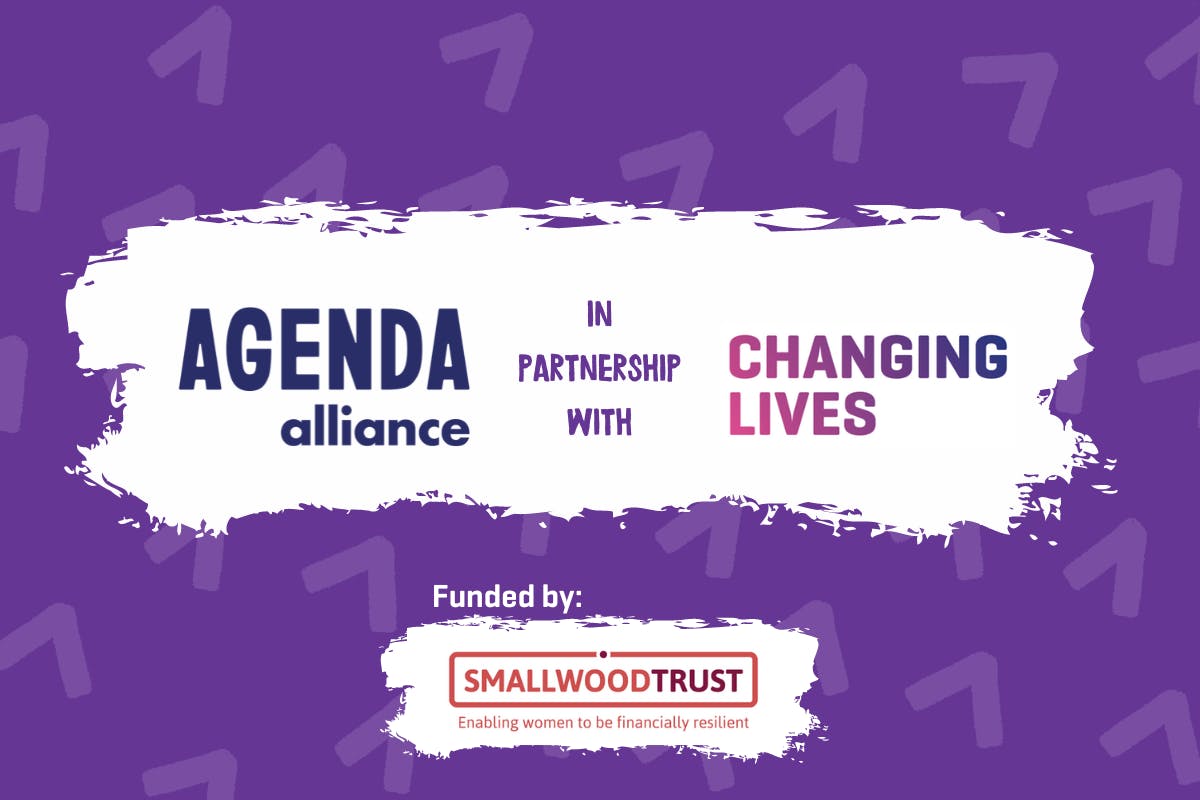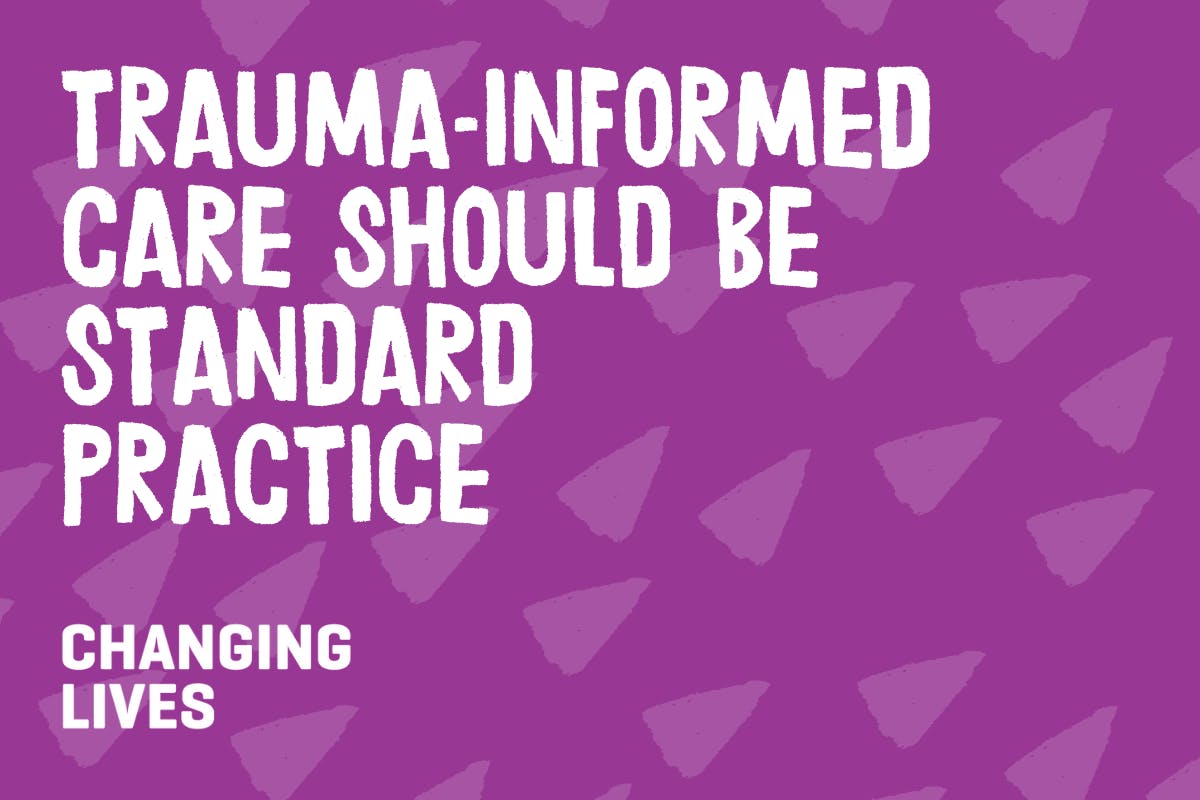This week the STAGE partnership held a Webinar on the theme of Access to Justice. Laura McIntyre Head of Women’s and Children’s Services opened the event, sharing reflections on this important piece of work.
STAGE is a partnership project, where eight women’s organisations across the North-East and Yorkshire have come together as one, to raise the voices and experiences of women who have been groomed, exploited and targeted for sexual abuse.
Changing Lives as the lead partner bring together the Angelou Centre in Newcastle, A Way Out in Stockton, Basis in Leeds, Together Women in South Yorkshire, Women’s Centre in Huddersfield, Ashiana in Sheffield and GROW in Rotherham.
The partnership was established in 2019 and is currently funded by the National Lottery. Together we have supported over 500 women and continue to meet the needs of more women.
Our model is split into two parts:
- The first part of our model is about practice - Meeting the needs of women, using assertive outreach and trauma informed care. Please see our STAGE toolkit on Changing Lives website for more details on what we really mean about trauma informed care, it’s not just a buzz word! Each of our organisations employ a full-time specialist sexual exploitation caseworker.
- The second part of our model is about informing policy change -Our STAGE policy officer and data analyst pull all the learning and insights from our practice into policy briefings. Our policy work is informed by the women we work with and together we create national policy recommendations.
We work across 5 policy areas:
- Access to Justice
- Access to Safe Housing
- Access to Health Services
- Understanding the needs for black and minoritized women who have been groomed for sexual abuse.
- Transitional Ages
Our organisations have supported women facing multiple layers of stigma, disadvantage, and abuse for years and strive to ensure that all women have a voice in a system that is meant to serve everyone.
Equal access to the justice system is paramount for the women we support and plays a significant role in how women feel understood, recognised, and cared about. For some women this might not mean being part of a full investigation but being treated with empathy and compassion from first policing responses. It’s huge, and especially for women who have repeatedly been ‘missed’ and often seen as the none-deserving victims, or the mad, bad, or sad.
The women STAGE support are living on the margins of our society and in many situations have been forgotten, left behind and judged for far too long. At STAGE we continue to challenge systems with direct, up to date practical knowledge and experience, we campaign for long-term structural change.
We create policy recommendations that are within reach, and we offer direction on how they can be achieved, with support from our Influencing Group members, chaired by MP Jess Phillips.
We work in geographic areas where we have seen high-profiled sexual abuse scandals, involving young women and men moving into adulthood, who were failed.
- Published in August 2014, the Jay report revealed that an estimated 1,400 children had been sexually exploited in Rotherham between 1997 and 2013, many in transitional ages.
- In Feb 2018 a joint Serious Case Review Concerning Sexual Exploitation of Children and Adults with Needs for Care and Support in Newcastle-upon-Tyne was published.
- In this Serious Case Review (also known as Operation Sanctuary) seventeen men and one woman were jailed for being part of a network that plied 22 women and girls aged 13-25 with drink and drugs before sexually assaulting them between 2011 and 2014.
The list to date of serious case reviews of this nature is now extensive for both large systematic organised crime groups and independent offenders targeting vulnerable women and girls.
Sadly, this type of abuse had not stopped. Our casework staff are always at full capacity with new referrals for women who have been groomed by men for sex.
We also know that sexual abuse doesn’t stop when you reach your 18th birthday. (CSE) The abuse can become more entrenched and complex, and women move into a place where they feel ‘invisible’ and deeply traumatised. We hear inappropriate language being used to talk about these women, such as, she was ‘sex working’ and she ‘put herself at risk’.
Sharing our Access to Justice work today is timely considering Baroness Louise Casey’s independent review of the Met Police, around police culture and standards of behaviour.
This links also to the Operation Soteria Bluestone’s 1-year report, focusing on improving outcomes for victims of rape and sexual offences, the report was published in December 22. We are also pleased to be in touch with the National Chief Police Council, Chief Constable Sarah Crew (QPM) who is the sponsor and host for Bluestone Soteria.
We hope that STAGE learning can be considered in the National Operating Model for the investigation of Rape and other Sexual Offences.
Multiple Safeguarding Adult Reviews (SAR’s) also make this event of importance today, all highlighting the same or similar concerns.
For example, in the instance of Molly’s SAR in Teesside, published in April 22. Molly’s mother recognised services tried hard to support and engage with Molly, but the men (and women) who were controlling her, supplying drugs, and abusing her were never brought to justice.
Of the disclosures that Molly did make and the interviews that were given to the Police using best practice ‘Achieving Best Evidence’ interviewing techniques, none led to effective prosecutions.
The attendance of the police had been problematic. Whilst in some safeguarding cases the absence of police may not have such an impact, it was the criminal justice processes and general policing of Adult Sexual Exploitation that Molly was a victim of that was of particular need within the safeguarding meetings. Other professionals would have benefitted from hearing some of the rationale regarding apparent limitations of police and CPS decisions.
Today STAGE colleagues share key findings and recommendations from our Access to Justice briefing, along with our two amazing guest speakers, where we all share common ground for change.
We hope that all the presentations today create movement and helpful conversations in a range of sectors and how organisations could be part of the STAGE journey and wider system change to help embed and take forward our recommendations, and to ensure no victim is left behind.
Finally, I wanted to give a massive thank you to all the dedicated, hardworking, frontline staff in STAGE who support women every day, their drive and commitment to women’s lives is why we are here today and is why we are able to talk about what change could look like. Practice will always inform Policy.
Thank you
Find out more about the STAGE project partnership here and sign up the the next webinar on Improving health outcomes for women who experience sexual exploitation.







